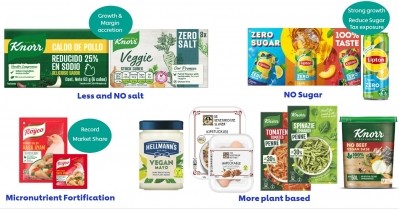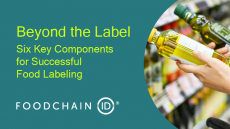Unilever trades market share for dollar sales growth to fund reinvestment in brands

Confronted with rising cost inflation that likely won’t peak until sometime in the second half of the year, the maker of Hellmann’s mayonnaise and Knorr spices is drawing from a playbook, “which has been fine-tuned in high-inflation markets over the years,” CEO Alan Jope told investors this week during the company’s second quarter earnings call.
He explained that it “starts with precision pricing taken quickly and single-mindedly to protect the shape of the P&L and retain our ability to invest behind our brands.”
Even if this results in low single-digit declines in the short term, “this is the correct strategy,” he said as he defended the decision to push through an 11% price increase across categories and products, which helped fuel an 8.8% rise in underlying sales growth but also cost the company 2.1% in volume declines with a dip in the percentage of its business winning share falling from 58% in the first quarter to 53% this period.
'Precision pricing taken quickly and single-mindedly to protect the shape of the P&L'
Within food & refreshment, growth was 8.1% in the quarter with a small decline of 1.2% in volume.
“We are careful not to push pricing levels to a point where we compromise the long-term health of the business, but as we said before, we are prepared to accept a short-term hit to competitiveness in some places as we lead on pricing,” he added.
The company also is prepared to pull back and even reverse prices in areas where it feels the competition is not following or it has moved too far, Jope added.
And while the company has done that in a few cases, Jope said for the most part the company’s brands “are in good health with more than 80% of our turnover with either stable or growing brand power,” which he said is “critical as we reset pricing” – something he expects will happen again as inflation continues to climb.
'We are prepared to accept a short-term hit to competitiveness in some places as we lead on pricing'
He acknowledged that some US retail partners are pushing back on price increases in some categories, but for the most part they share Unilever’s “strong growth mindset” and recognize the pressures and limitations of the unforgiving current economic environment.
For example, earlier this week, Walmart warned that rising food and gas prices in the double digits are affecting customers’ ability to spend on general merchandise categories, such as apparel, forcing it to take more markdowns to move inventory in segments.
Unilever CFO Graeme Pitkethly appeared unbothered by this announcement, explaining that he understood Walmart’s announcement to be about non-consumables.
Unilever is closely watching the impact of inflation on consumer discretionary spending
However, he said, the company is closely watching the impact of inflation on consumer discretionary spending, but he expects it will impact eating out habits, which could bolster at-home eating and Unilever sales.
As consumers tighten their purse strings in the face of rising inflation, they also are shifting from online to offline channels, which benefits most retailers, Pitkethly noted.
He explained many consumers are “pre-shopping” online for value and then visiting stores to purchase products because they “believe that a store visit will expose that value more actively to them and they have a more engaged and active shopping decision.”
When all is said and done, Unilever now expects to beat its previous full-year expectations and bring in underlying sales growth of 4.5% to 6.5% for the fiscal year.





















